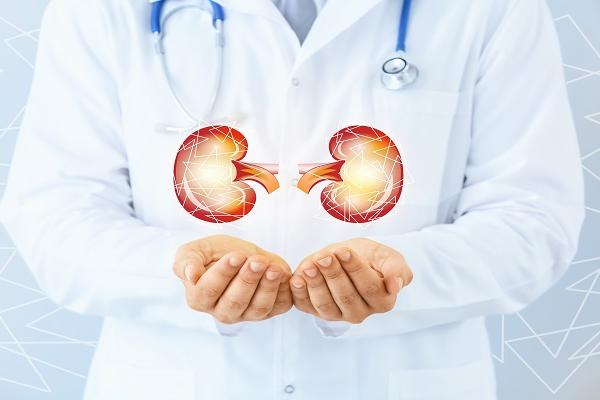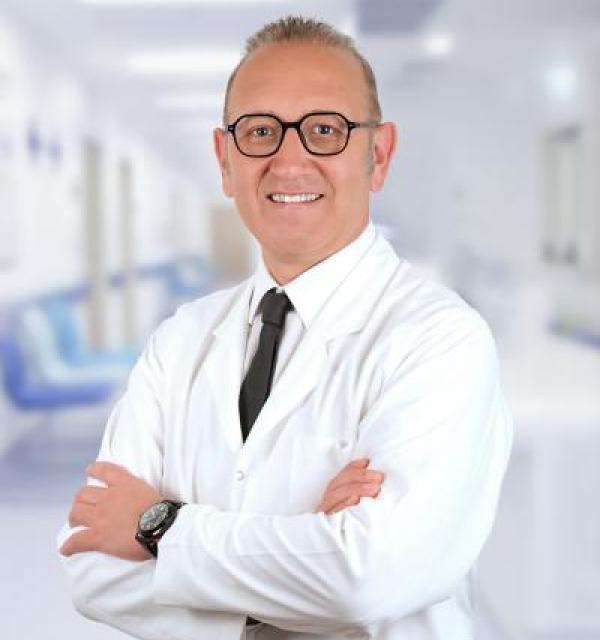Ways to Get Rid of Kidney Stones
Treatment of Kidney Stones with Flexible System
Our country is located in a hot zone called the stone belt. For this reason, approximately 14 percent of the population has kidney stones. Kidney stone disease is one of the most important causes of chronic kidney failure in Turkey, so it must be treated. Stating that the flexible method, which is defined as removing the stones in the kidney with a bendable system, can be applied to patients of all age groups, Yeditepe University Koşuyolu Hospital Chief Physician and Head of the Department of Urology Prof. Dr. Faruk Yencilek answered the questions about kidney stones...
What causes kidney stones?
As with many diseases, it is difficult to attribute the cause of kidney stones to a single cause. We know that it is 3-4 times more common in men than in women. Therefore, gender is a factor in the occurrence of stones. In addition, we know that genetic factors are also effective in the formation of kidney stones. Namely, a person whose mother or father has kidney stones is more likely to develop kidney stones. Our habits are also a very important determinant in kidney stone formation. In some patients, even if there is no genetic factor, only dietary habits can determine the formation of stones and even the type of stone. Low exercise or inactivity is also an important risk factor. Kidney stones are more common in those who lead a sedentary life than those who lead an active life.
Is there an age limit for stone formation?
Kidney stones are a problem that occurs at any age. So much so that it can occur very early in a newborn child or at the age of 70-80. In other words, kidney stones can be seen at every stage of human life.
What is the importance of water for kidney stones?
It is extremely important. One of the most important preventive measures to be taken in a patient with kidney stones is water, regardless of the type of stone. A person's urine output of 2 liters is a very important value. To achieve this, they should drink 2.5 liters of fluid. When 2 liters of urine are discharged per day, the probability of a person who passes stones every year forming kidney stones in one year decreases by 67 percent.
If the person has a stone, our first focus is to remove the stone from any part of the urinary tract. After that, we have to focus on preventing the stone from forming. Because stones can regenerate. The chance of a stone re-forming within five years is 50 percent.
Why do kidney stones reoccur?
Our kidneys are a very complex and magical organ responsible for maintaining the acid-base and mineral balance of our body. It is responsible for removing excess fluid from the body regardless of the amount of fluid taken during the day. With the effect of genetic factors and eating habits, the kidney becomes prone to stone formation. In the meantime, the kidneys produce a substance called "citrate" to prevent stone formation. If this substance is not secreted in sufficient amounts and the amount of water drunk is low, kidney stone formation begins in the form of small crystallizations. Stones are formed mostly in the lower part of the kidney due to the effect of gravity. Therefore, an active life along with drinking plenty of water is very important for the removal of these crystals. People who lead a sedentary life are more likely to develop kidney stones than those who lead an active life.
Stones in the upper parts of the kidney are more likely to fall out. Stones that occur in the middle part of the kidney are slightly more likely to fall on their own than the upper part, while the stones in the lower part are the most difficult to fall.
When does a kidney stone cause pain?
Kidney stone crystals may not cause pain until they reach a certain size. Pain occurs only when the stone blocks the flow of urine. Apart from this, stones that grow slowly in the kidney can cause blunt pain with a feeling of fullness over time. In the lucky ones, the pain takes the patient to the physician and can be treated. However, in some slow-growing stones, the patient may not feel any pain or get used to the mild pain over time. In this case, time is lost and unfortunately, the kidney may have lost its function and may have reached the end stage when the patient presents to the physician. For this reason, it is important to know that insidiously progressing kidney stones are very important and that not every kidney stone will cause pain and it is important to take the necessary precautions.
Are there foods that prevent the formation of kidney stones?
Calcium stones account for 80 percent of all kidney stones. Ten percent are uric acid stones and 8 percent are citrine (infection stones) that occur in people with frequent urinary tract infections. Sometimes more than one different mechanism can form the same stone. . For example, in calcium oxalate stones, in some cases only calcium, or oxalate, or in other cases both, can cause the formation of this stone. In some cases, although calcium and oxalate are normal, the likelihood of calcium oxalate stones increases due to citric deficiency.
Therefore, it is not possible to talk about a single product or food that prevents kidney stone formation. The important point is to drink plenty of fluids. In addition, minimizing the consumption of acidic drinks, tea, and coffee, reducing salt, and exercising regularly are the main things to be done to prevent all kidney stones. Although stones can be seen in all age groups, everyone over the age of 40 needs to undergo a urological examination once.
How are kidney stones treated?
Kidney stone treatment depends entirely on the size of the stone and its location in the urinary tract. For example, if there is a stone blocking the ureter, or the tube connecting the kidney and urinary tract, these stones can be expected to fall spontaneously within a few weeks with the help of medication. However, in patients where medical treatment is not sufficient, an intervention is absolutely necessary. In some cases, patients may avoid treatment by saying "I have no pain". However, it should be known that there is no relationship between pain and treatment. At this point, what is important for us is that the urine comes and excretes easily from the kidney to the bladder. Otherwise, the result can lead to kidney failure. Therefore, in cases that do not respond to medication, sometimes the stone can be removed even if it is small.
Could you give information about the 'kidney stone removal with flexible system' procedure you perform?
If left untreated, kidney stones can progress and damage the kidney. It should also be kept in mind that these stones may recur if they are not followed up sufficiently after they have been treated only once. Complete removal of the stones is of great importance in this respect. The method of breaking the stones in the kidney with a bendable system has been practiced in Turkey for about 16 years. In the procedure, which is performed by closed method without disrupting the body integrity, the kidney is reached by following the urinary tract upwards from the opposite direction. The stone in the kidney is pulverized with a holmium laser.
How many patients have you treated with this method?
We have been applying the Flexible method to our patients since 2004. For years, thousands of patients have been treated with this method without pain and suffering. Over time, our experience in this field has increased. In the flexible method, which was initially applied to smaller stones, we reached up to 6 cm stones.
Can this procedure be repeated?
Of course, the preferred method is to prevent the stone from forming again after it has formed once. At this point, both the physician and the patient have some duties. However, the patient should know that the lifestyle they follow causes the stone formation and if no effort is made to change this, the stone formation will continue. However, this procedure can be performed again if necessary. Since it is performed using the body cavity, it does not cause any harm to the patient.
”



